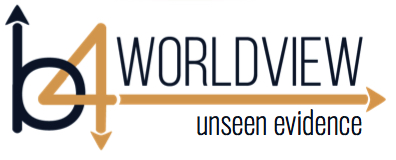
Key Thought for this session:
“If any outcome of life is acceptable to me, then any path will get me there.”
And the ultimate challenge for me is that in all of the knowledge and opinions out there, can I have confidence in which is true? Ultimately, the real question is: How can I trust what I believe enough to act on it?
Let’s get a working definition for truth. The most common definition of truth is “a perceived fact.” In this case truth is relevant to what a person perceives. As we have seen in the previous section, perception is quite subjective and flawed by biases and filters in our human nature and cultural influences. What is interesting is that if we look up the definition of “fact,” we will find that it means “truth.” This is what we call a circular definition and it is not very helpful. This view of truth has emerged over the years as culture has increasingly emphasized each person’s independent role in determining truth. Looking back to ancient times, we find that truth was viewed as objective and not determined by people’s perception. In many ancient writings, the word for truth literally meant “disclosure.” In further study of ancient writings on truth we find that truth is the disclosure of the qualities of an object that are consistent with its design or origination. The disclosure of the qualities of an object is not discovered by a person’s perception, but revealed by the object’s originator. So, as it started out, truth was considered objective, or what we call absolute truth. This means, absolute truth is not determined by anyone’s opinion. In other words, for reasons we’ve already observed together, if we want to know the “real” truth, we must accept that it cannot come from something that is as flawed and biased as human perception.
To believe truth is absolute, or to believe truth is relative, is really to choose whether you trust your own capability to discover truth through your own abilities and biased filters, or to trust what is revealed to you by the authority--as the “real” truth. An example would be, in driving a car safely, do we believe the tire designer who says his tire will safely travel on a particular car up to speeds of 90 miles per hour, or do we believe a local car mechanic who is guessing it will safely go up to 120 miles per hour based on his experience with other cars and tires. With you and your family in the car, which one are you going to trust? Probably the tire designer who is the more trustworthy authority. This just illustrates that each of us must constantly make fundamental choices in life... and knowing who to trust is vital to knowing “which way is up?”
But first you might want to ask yourself, is it even NECESSARY to believe truth is absolute in order to live an abundant and virtuous life? Or could I turn that around and ask, “In other words, if I drive my family in my car on that tire at 120 miles per hour, might that hinder me from having an abundant and virtuous life?” I mean... looking at it like this, we begin to recognize the potential impact and negative consequences from trusting faulty perception – which evidently could by quite severe. What do you think of this line of reasoning?